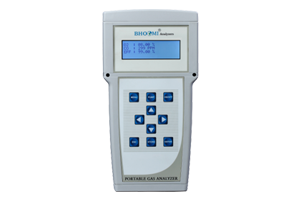Why Flue Gas Analysers Are Essential for Compliance in Power Generation ?
In the power generation industry, environmental compliance is a critical aspect of operations. Regulatory bodies set stringent standards to limit pollutants released into the atmosphere, which requires power plants to consistently monitor their emissions. This is where flue gas analysers play a crucial role. These devices help measure the composition of gases emitted through the flue (or exhaust) from combustion processes. They ensure that power plants meet environmental regulations and operate efficiently. Here, we explore the importance of these gas analysers in power generation compliance.
Monitoring emissions for regulatory compliance
These gas analysers are indispensable for monitoring the composition of gases such as carbon dioxide (CO2), carbon monoxide (CO) and sulphur dioxide (SO2) in the exhaust streams of power generation units. Regulatory bodies impose strict limits on the emission levels of these gases due to their detrimental impact on air quality and human health.
Power plants are required to regularly report their emission levels to demonstrate compliance with local, national and international environmental standards. Failure to comply with these standards can result in heavy fines, operational restrictions and even the closure of facilities. Analysers for flue gas provide real-time data on emission levels, allowing power plants to maintain their emissions within permissible limits.
Optimising combustion efficiency
Efficient combustion is essential for both reducing emissions and maximising the energy output of power plants. Poor combustion results in higher levels of harmful gases, such as CO and NOx, and can lead to inefficiencies in fuel usage. Flue gas oxygen analysers are critical tools for optimising combustion processes by measuring the amount of oxygen in the flue gas.
The ideal combustion process requires the correct balance of oxygen and fuel. Too much oxygen leads to excess heat loss, while too little oxygen results in incomplete combustion, which produces harmful gases and wastes fuel. The analysers help operators fine-tune combustion conditions by providing real-time data on oxygen levels and the presence of unburned gases. This ensures that combustion is optimised, improving fuel efficiency and minimising emissions.
Reducing environmental impact
These gas analysers contribute to the overall reduction of the environmental impact caused by power generation. Power plants that burn coal, natural gas, oil or biomass produce gases that can contribute to climate change and air pollution. CO2 is a major greenhouse gas responsible for global warming, while SO2 and NOx contribute to acid rain and respiratory issues.
By monitoring and controlling these emissions with the help of analysers, power plants can significantly reduce their environmental footprint. Also, modern analysers offer advanced features such as continuous emissions monitoring systems (CEMS), which provide long-term tracking of emissions. These systems enable power plants to implement emission control strategies, such as flue gas desulfurization (FGD) or selective catalytic reduction (SCR), to further reduce pollutants.
Ensuring long-term plant sustainability
As environmental regulations become more stringent, power generation companies must adopt technologies that not only ensure compliance but also promote long-term sustainability. The ability to accurately monitor and manage emissions is essential for the future viability of power plants.
Looking for flue gas analysers?
Explore our portable flue gas analyser collectionM. These devices offer mobility, allowing for operation while on the go. They are powered by rechargeable batteries, making it even more convenient to use them in a variety of situations. Each of our analyser devices is capable of detecting different gases. Based on your specific requirements, you can choose the analyser that is best suited to the operations.




